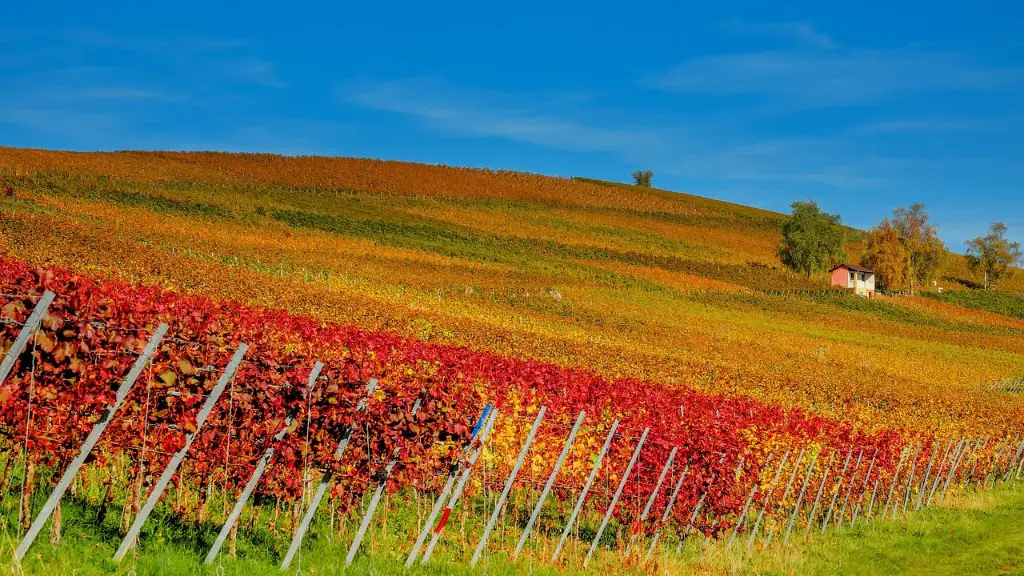The current Secretary of Agriculture is Sonny Perdue, who was nominated by President Donald Trump and took office on April 25, 2017. He is the 31st person to hold the office of Secretary of Agriculture since it was created in 1889. Perdue’s tenure has been marked by many controversial decisions, including new rules governing SNAP (formerly known as food stamps), a change in the school lunch program, and the loosening of some regulations on pesticide use. He has also been a vocal advocate for rural development and has spoken out on the need for reform of the farm bill.
Some of the major initiatives that Secretary Perdue has initiated include the “People’s Garden” program, an initiative to promote urban and inner-city gardening and the “Rural Development Innovation Center,” which is designed to bring innovative thinking to rural and agricultural issues. He has also promoted agricultural trade initiatives, including free trade agreements with Canada, Mexico and Japan, and has sought to reduce trade barriers with other countries.
In July of 2017, Secretary of Agriculture Perdue announced the National Bioengineered Food Disclosure Standard, which requires food manufacturers to disclose whether a food product contains genetically engineered ingredients. The new standard, which went into effect in January 2018, was the subject of much controversy and debate. Those in support of the standard argue that it ensures consumers are aware of which ingredients have been genetically engineered, while those opposed argue that it is not an effective way to keep food safe and that it unfairly targets small and mid-sized growers.
In addition to his focus on agricultural issues, Secretary Perdue is also a strong advocate for rural America, arguing that policymakers should focus on the needs of rural communities and providing support to rural businesses. He has also promoted increased access to broadband internet, which he argues is vital for rural communities in order to stay economically competitive.
Through his tenure, Secretary Perdue has worked hard to promote the interests of American farmers, supporting the ranching and farming industries through initiatives to provide access to new markets, protect farm land from development, and reform taxation policies. He has also worked to build a strong environmental record, reinstating the “sodbuster” conservation program and launching the “America’s Conservation Enhancement” initiative to support soil health, water resources and conservation efforts.
Rural Development
Perdue is a big advocate of rural development and has sought to address rural poverty and the economic disparities between rural and urban areas. He has promoted initiatives to increase access to broadband internet and other services, such as health care, in rural communities. He has also called for reforms to the farm bill, including a push to increase funding for crop insurance and other programs designed to help farmers recover from extreme weather events and other economic crises.
He has also advocated for the expansion of conservation programs, such as the Conservation Reserve Program, which helps farmers protect soil and water quality by limiting farming practices which can lead to soil erosion and water contamination. The idea behind this program is to conserve resources and at the same time to give farmers more options for earning income from their land.
In addition, Secretary Perdue is a strong proponent of the “farm-to-table” movement, which looks to increase access to fresh, locally produced foods. He has also supported the development of small-scale and sustainable farming practices, such as “no-till” farming, which reduces the need for fertilizer and other chemical inputs.
Lastly, he has sought to improve rural infrastructure, such as roads, bridges and telecommunications systems, which are essential to the success of rural communities. Secretary Perdue has also supported programs aimed at increasing access to capital and other resources for small and mid-sized farmers, as well as initiatives to promote rural entrepreneurship and job creation.
Trade and Industry
Secretary Perdue has also been a proponent of free trade agreements, believing that free trade is essential to the success of the agricultural sector. He has played a role in negotiating new trade agreements with China, Mexico, Canada and Japan, and has spoken out in support of the Trans-Pacific Partnership (TPP), which is aimed at forging closer ties between Pacific Rim countries.
In terms of industry, Secretary Perdue has promoted investment in rural broadband, biotechnology and aquaculture, as well as initiatives to support farmers and ranchers to adopt new technology, such as precision agriculture. He has also been a strong supporter of farm-to-table initiatives, promoting the consumption of local and fresh foods. Lastly, he has sought to reduce regulatory burdens on farmers and food producers and has been an advocate for agricultural research, including backing research programs to develop new farming and food production methods.
Regulatory and Environmental Matters
Under Secretary Perdue, the USDA has also made some major changes to its regulations in order to reduce the burden on farmers and food producers. These include loosening some regulations governing pesticide use, changing certain requirements for the school lunch program and introducing a new standard for labeling genetically modified food. He has also sought to reduce regulations governing water and air quality, as well as taking steps to improve the working conditions of migrant and seasonal farm workers.
Secretary Perdue is also an advocate of conservation practices, such as no-till and crop rotation, and has reinstituted the “sodbuster” conservation program, an initiative designed to protect soil and water quality. He has also pushed for reforms to the farm bill which would provide more funding for conservation programs, as well as promoting public-private partnerships aimed at preserving open spaces and improving water and air quality. Lastly, he has sought to reduce government interference in agricultural markets, arguing that policies should focus on the true needs of farmers and ranchers, rather than being driven by the goals of special interest groups.
Nutrition Programs
Perdue has also come under fire for his handling of the Supplemental Nutrition Assistance Program (SNAP), formerly known as food stamps. Since taking office, he has attempted to impose tighter restrictions on SNAP, including a new work requirement for certain beneficiaries and the introduction of waivers for certain states. He has argued that these moves would encourage those receiving SNAP to seek employment, but has been accused of trying to punish those in poverty who are already struggling.
Perdue has also changed the nutritional standards for school lunches and has reduced the availability of nutrition programs in schools. He has argued that these moves are designed to reduce the amount of money being spent on some programs, but critics have argued that they will reduce the nutritional quality of meals served to students and make it harder for those in poverty to access healthy meals.
International Food Security
Secretary Perdue has also been active in promoting food security initiatives throughout the world. His tenure has seen the creation of the “Feed the Future” program, which aims to improve farming methods and increase access to food in some of the world’s poorest countries. Additionally, he has been a vocal advocate for international trade agreements, believing that increased access to global markets is essential for the success of farmers worldwide.
Furthermore, Secretary Perdue has signed agreements with China and other countries to expand research and promote sustainable farming practices. He has also spoken out on the need to address issues of hunger and malnutrition, and to improve access to healthy, nutritious food for all. Lastly, he has worked to promote cooperation between countries on issues such as food safety, animal health and food security.




